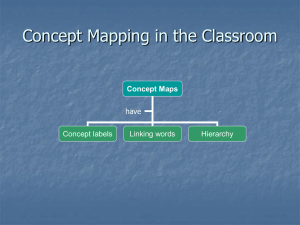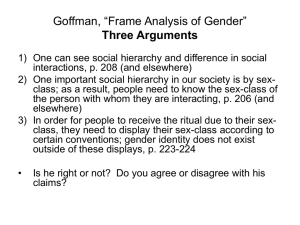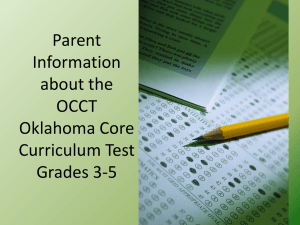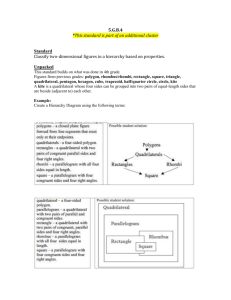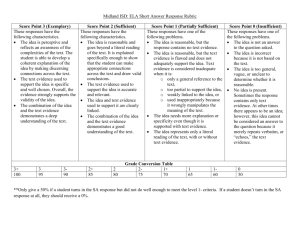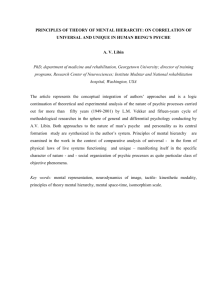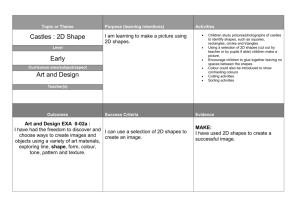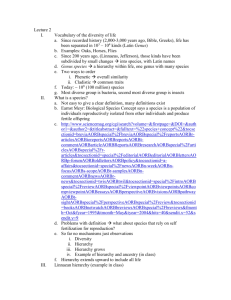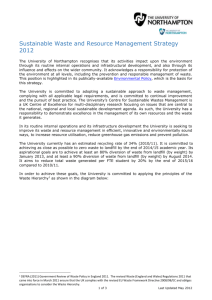Cog Organizer Alt Assignment Guidelines
advertisement
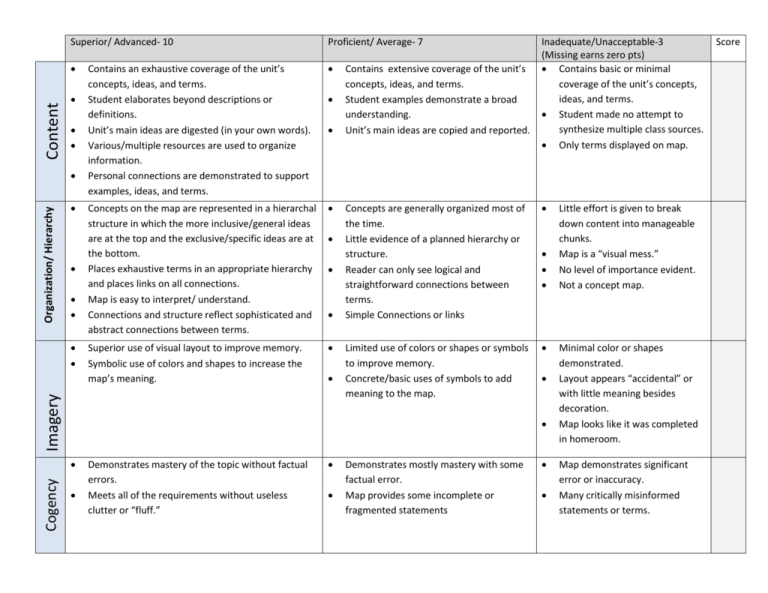
Content Superior/ Advanced- 10 Proficient/ Average- 7 Contains an exhaustive coverage of the unit’s concepts, ideas, and terms. Student elaborates beyond descriptions or definitions. Unit’s main ideas are digested (in your own words). Various/multiple resources are used to organize information. Personal connections are demonstrated to support examples, ideas, and terms. Concepts on the map are represented in a hierarchal structure in which the more inclusive/general ideas are at the top and the exclusive/specific ideas are at the bottom. Places exhaustive terms in an appropriate hierarchy and places links on all connections. Map is easy to interpret/ understand. Connections and structure reflect sophisticated and abstract connections between terms. Superior use of visual layout to improve memory. Symbolic use of colors and shapes to increase the map’s meaning. Organization/ Hierarchy Imagery Concepts are generally organized most of the time. Little evidence of a planned hierarchy or structure. Reader can only see logical and straightforward connections between terms. Simple Connections or links Limited use of colors or shapes or symbols to improve memory. Concrete/basic uses of symbols to add meaning to the map. Cogency Contains extensive coverage of the unit’s concepts, ideas, and terms. Student examples demonstrate a broad understanding. Unit’s main ideas are copied and reported. Inadequate/Unacceptable-3 (Missing earns zero pts) Contains basic or minimal coverage of the unit’s concepts, ideas, and terms. Student made no attempt to synthesize multiple class sources. Only terms displayed on map. Demonstrates mastery of the topic without factual errors. Meets all of the requirements without useless clutter or “fluff.” Demonstrates mostly mastery with some factual error. Map provides some incomplete or fragmented statements Little effort is given to break down content into manageable chunks. Map is a “visual mess.” No level of importance evident. Not a concept map. Minimal color or shapes demonstrated. Layout appears “accidental” or with little meaning besides decoration. Map looks like it was completed in homeroom. Map demonstrates significant error or inaccuracy. Many critically misinformed statements or terms. Score Alternate assessment for Motivation and Emotion- Concept Map Application Name: __________________________________________________ Due Date: ______ Pd: _____ MIND MAPPING! Instead of a traditional test on the unit’s concepts and information, you will be assessed on what you know about motivation and emotion, connections and correlations between the topics, and applications to the real word using your lecture notes, supplemental readings, and in-class discussions, and activities by creating a concept/mind map. You will start at the top of a ½ sheet of poster board with 2 essential questions: Why do you do the things that you do? (Motivation) What are normal adult emotions that help define your humanity? (Emotion) Beginning with these essential questions, you need to create a meaningful hierarchy that will branch out showing relationships and causation between motivation and emotion. An example and rubric are provided. You must use Novak and Gowin’s techniques and strategies practiced in the previous chapter (see the concept map assignment & guidelines). Requirements Elements: Answering the Essential Questions: Significant terms/associations/examples must be identified in your map Each idea and concept must be described without using verbatim lines from your notes…demonstrate understanding, express comprehension! You will be graded on accuracy and thoroughness.
